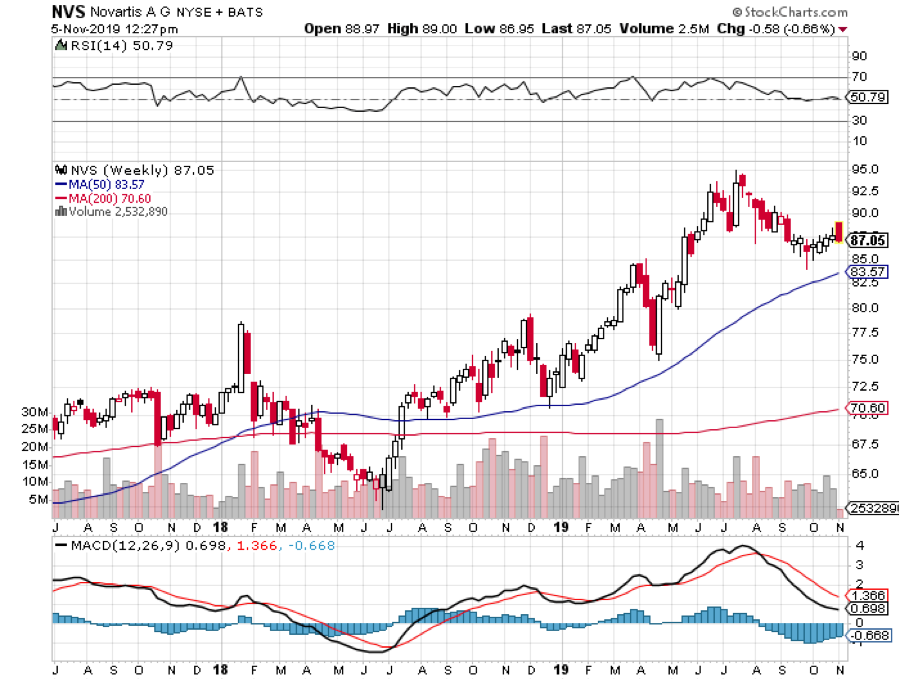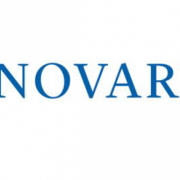Buy Novartis on the Data Scandal Dip
Amid the public outcry over how Novartis A.G. (NVS) dealt with the data manipulation issue involving its $2.1 million gene therapy Zolgensma, the stock has been doing quite fine. In fact, the Food and Drug Administration (FDA) has reassured everyone that the drug is still a safe choice for spinal muscular atrophy.
Although the agency threatened to impose “civil or criminal penalties,” it also reiterated that the FDA “remains confident that Zolgensma should remain on the market.” This is probably because the data manipulation affected only a minimal part of the information submitted for Zolgensma’s approval. It had no connection at all to more pressing matters like human safety and efficacy tests.
Rather, it pertains to the mouse studies performed during the early stages of drug testing. The FDA explained that Novartis’ data “continues to provide compelling evidence supporting an overall favorable benefit-risk profile” for the drug.
Nonetheless, Novartis didn’t exactly go away scot-free as an ex-FDA commissioner said that “the key issue of trust in the face of overwhelming complexity is driving the stern warning and possible consequences.”
In terms of the effects of the issue on Zolgensma’s sales, it’s also unlikely that it will greatly affect Novartis as a whole. The treatment is currently estimated to bring $200 million in profits this quarter and possibly $300 million in the succeeding period. Assuming that the FDA decides to impose a more restrictive punishment, Zolgensma’s sales contribute a tiny drop in the bucket of the company’s $11.7 billion estimated quarterly earnings.
This is why despite all the hullabaloo, people who have no idea about the issue wouldn’t even catch a whiff of it from looking at the ticker. Reviewing Novartis’ performance during the height of the issue, its shares went down only 0.8% amid a general Biotech and Life Sciences market slowdown.
So, why isn’t Novartis getting penalized for this data manipulation scandal? Because at the moment, the issue -- no matter how humiliating -- seems highly unlikely to affect the stock’s bottom line.
In the second quarter of 2019, Novartis beat earnings and sales estimates with the company even raising its guidance for this year. It recorded core earnings of $1.34 per share, up from the $1.18 reported in 2018. The company’s profits increased to hit $11.8 billion as well. Compared to the rest of the industry, which suffered a 1.1% decline, Novartis recorded a 5.2% gain so far in 2019.
Now, let’s take a look at the performance so far of its two major growth drivers: Innovative Medicines (pharmaceuticals) and Sandoz (generics).
The pharma segment grew by 10% this year and reported sales worth $9.3 billion, indicating a 9% increase year over year. Among the notable performers in this division is psoriasis treatment Cosentyx, which has been gaining traction especially in the United States as shown by the 25% increase in its sales to hit $858 million.
A global uptake, particularly in the hospital and ambulatory demand for chronic heart failure medication Entresto, also boosted its sales by 81% to rake in $421 million.
Novartis’ oncology unit also showed an increase of 9% courtesy of acute lymphoblastic leukemia drug Kymriah, severe aplastic anemia medication Promacta, and breast cancer treatment Kisqali.
Even its Lutathera, the radioactive targeted therapy for neuroendocrine tumor that was a recent addition from the acquisition of Advanced Accelerator Applications (AAA), contributed to this solid performance. AAA sales reached $171 million with $109 million coming from Lutathera profits alone. Meanwhile, Kisqali’s sales grew 94% and Promacta profits grew 23%.
As for the Sandoz segment, the division recorded $4.8 billion in sales, up by 1%. Its biopharmaceuticals profits increased 14% mainly thanks to the notable double-digit growth of cancer and rheumatoid arthritis treatment Rixathon (a biosimilar of Roche Holding AG’s (RHHBY) Rituxan), plaque psoriasis medication Erelzi (a biosimilar of Amgen’s (AMGN) Enbrel), and rheumatoid arthritis drug Hyrimoz (a biosimilar of AbbVie’s Humira).
The strong performance during the second quarter pushed Novartis to boost its sales and earnings forecasts for 2019 to reflect mid-to-high single-digit increase. The new wave of drug approvals the company has gained provided added confidence to its performance in subsequent months.
Aside from expanding its rare genetic disorder portfolio with Zolgensma and oncology division with advanced breast cancer drug Piqray, Novartis is also looking to bring more depth to its ophthalmic pharmaceutical department with the acquisition of dry eye treatment Xiidra.
Given its current performance and the promising drug pipeline it has for 2019, Novartis is anticipated to become one of the top-performing biopharmas in the market today.
Buy (NVS) on the next dip.



